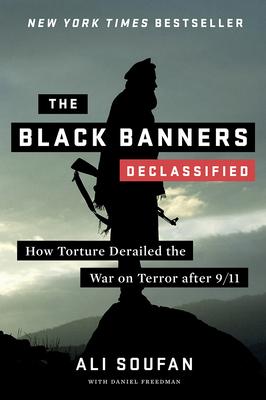Widely heralded on publication as a "must-read" (Military Review) and "important window on America's battle with al-Qaeda" (Washington Post), Ali Soufan's revelatory account of the war on terror as seen from its front lines changed the way we understand al-Qaeda and how the United States prosecuted the war--and led to hard questions being asked of our leaders.
When The Black Banners was published in 2011, significant portions of the text were redacted. After subsequent review by the Central Intelligence Agency, those redactions have been lifted. Their removal corrects the record on how vital intelligence was obtained from al-Qaeda suspects and brings forth important new details on the controversial use of enhanced interrogation techniques (torture) to extract information from terror suspects. For many years, proponents of the use of these techniques have argued that they produced actionable intelligence in the war on terror. This edition of The Black Banners explodes this myth; it shows Soufan at work using guile and intelligent questioning--not force or violence--to extract some of the most important confessions in the war, and it vividly recounts the failures of the government's torture program. Drawing on Soufan's experiences as a lead operative for the FBI and declassified government records, The Black Banners (Declassified) documents the intelligence failures that lead to the tragic attacks on New York and Washington, DC, and subsequently how torture derailed the fight against al-Qaeda. With this edition, eighteen years on from the first sanctioned enhanced interrogation technique, the public can finally read the complete story of what happened in their name after the events of 9/11.
The Black Banners (Declassified) includes a new foreword from Ali Soufan that addresses the significance of the CIA's decision to lift the redactions.
